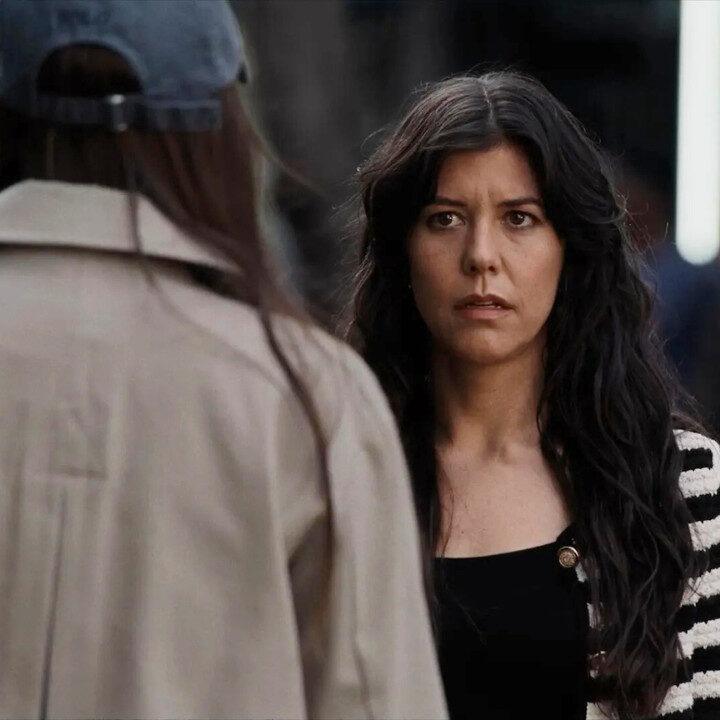Spoiler Warning: This piece discusses major plot points from ‘Materialists’ and contains mentions of sexual assault.
‘Materialists’ (2025) arrives with a promising premise, exploring love, money, and the complexities of modern dating, but ultimately gets stuck in clichéd romantic territory. Following Celine Song’s outstanding debut ‘Past Lives,’ this film feels like a noticeable step back from the nuanced exploration of relationships her work once promised. While ‘Materialists’ has stirred conversations around so-called ‘broke boy propaganda,’ its central storyline struggles to deliver fresh or compelling insights – and worse, it doesn’t even convincingly handle the tired ideas it revisits. Still, beneath that surface, a more thoughtful subplot quietly emerges as the film’s most emotionally resonant thread.
Read More: The Kids Aren’t All Right – ‘Weapons’ (2025) Falls A Bit Short Of Its Terrifying Premise

A Familiar Retelling Of Old Tropes
At its core, ‘Materialists’ follows Lucy (Dakota Johnson), a matchmaker caught between two men: her less wealthy ex, John (Chris Evans), an actor and cater-waiter, and the affluent financier Harry (Pedro Pascal). Yet this love triangle never manages to feel fresh, recycling worn-out arguments about money and romance that have played out in countless films before. The supposed critique of capitalism and the ‘math’ of dating – how financial status infiltrates love – comes across as shallow and overly simplified, pushing black-and-white ideas onto a subject that’s far messier.
Instead of unpacking nuanced themes, Lucy’s fixation on money often reads as a flat character flaw or moral failing. The film hammers this point again and again through clunky, heavy-handed lines that reduce her perspective to endless variations of ‘money, money, money.’ Rather than encouraging the audience to understand her motivations, the script seems designed to make us dismiss her outright.
Neither of Lucy’s relationships feels especially convincing or engaging, leaving viewers disconnected and unsure of who, if anyone, to root for. The story goes out of its way to underline why Harry is the wrong choice but fails to show why Lucy and John should be together – or how they might overcome their old conflicts. Both dynamics skim over the complexities beneath the surface, resulting in a romance that falls back on the most predictable story beats. The outcome echoes the same ‘love over money’ narrative that defined so many early-2000s rom-coms (including Evans’s own ‘What’s Your Number?’).

Underused Potential Lost To Surface-Level Ideas
Had the film leaned into Lucy’s role as a matchmaker and explored the inherent power dynamics and moral complications within that job, ‘Materialists’ could have delivered a sharper, more meaningful commentary on dating today. Instead, it takes the safer, more conventional route of spotlighting Lucy’s flawed romantic entanglements – oversimplifying money’s role and wasting the opportunity to examine the more layered realities of modern relationships.
Much has been said about ‘Materialists’ as a piece of ‘broke boy propaganda,’ with even Song commenting on this take. Yet after watching, it’s clear the film’s arguments about money and dating aren’t provocative or well-developed enough to convince anyone of much. While well-made and occasionally thought-provoking, ‘Materialists’ ends up weighed down by familiar ideas and a reluctance to push further, leaving its most ambitious themes feeling disappointingly shallow.

Sophie’s Story: A Sobering Shift
Amid the predictable main narrative, the subplot involving Lucy’s client Sophie (Zoë Winters) emerges as the film’s most emotionally rich element. Introduced as an ageing, unlucky-in-love woman struggling to find a meaningful connection, Sophie’s storyline initially blends into the film’s lighter tone. However, halfway through, the movie takes a sharp and unexpected turn when it’s revealed that Sophie’s latest first date ended in a sexual assault. This revelation feels sudden and almost jarring, given the film’s earlier comedic approach to dating – instead, it forces the audience to reconsider those lighter moments in a much harsher light.
Earlier, ‘Materialists’ presents a montage of shallow, superficial, and often absurd demands from male clients – played for laughs as they bombard Lucy with impossible matchmaking requests. At the time, viewers might have simply brushed these men off as terrible but harmless – yet Sophie’s story pulls the rug out from under that assumption. Like Lucy herself, we’re confronted with the unsettling truth that those awful men are capable of real harm, and dating isn’t just a game of whimsical frustrations but one with serious, sometimes devastating consequences.

The Math Behind Modern Love
Lucy’s navigation of modern dating is complicated not just by her personal relationships but also by her role as a matchmaker – a role the film never fully takes advantage of – where she pulls the strings of other people’s love lives. Throughout the film, Lucy repeatedly likens dating to math and applies this logic in her own tangled relationships with Harry and John. But with her clients, she’s the one doing that math for them.
In the high-stakes game of love, Lucy is more than a player – she’s also a dealer. In Sophie’s case, Lucy faces the grim reality that she has made a serious miscalculation, and her emotional response reveals a vulnerability deeper than the rest of the film ever dares to approach.
This subplot briefly opens a window into the darker, more troubling sides of modern dating, highlighting Lucy’s complex role in a risky realm where emotions, safety, and control constantly hang in the balance. Her guilt and earnest attempts to make amends with Sophie bring much-needed depth and complication to the film – depth the main love triangle sorely lacks – making this storyline the most thought-provoking aspect of ‘Materialists.’
Unfortunately, the film never takes the time to fully explore this angle and instead treads water by rehashing familiar ideas through the main love triangle. Song’s pen doesn’t conjure the same magic here that ‘Past Lives’ managed, and Sophie’s story ends up, at best, a missed opportunity to dig deeper. At worst, it becomes a serious subject brushed aside – reduced mainly to a stepping stone for Lucy’s ‘redemption’ and her unearned happily-ever-after with John.
Born in Korea and raised in Hong Kong, Min Ji has combined her degree in anthropology and creative writing with her passion for going on unsolicited tangents as an editor at Friday Club. In between watching an endless amount of movies, she enjoys trying new cocktails and pastas while occasionally snapping a few pictures.




